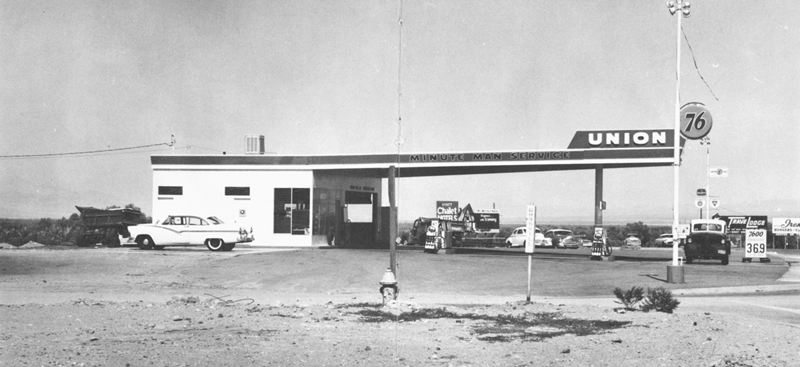Do you drive? I do not, cannot and will not, but my borderline phobic attitude to the motor car exists in tandem with a genuine, epicurean love for the smell of petrol; just as the olfactory bang of frying garlic hits me with Pavlovian ravenousness, the heady, metallic stench of a petrol station forecourt immediately renders me helplessly vulnerable to the catchpenny tat in the shop. Long car journeys punctuated by filling stops have caused me to invest in copies of magazines I don’t read, CD compilations I will never listen to and truly rebarbative wraps that bear as much resemblance to their advertised ingredients as I do to Lewis Hamilton. In a city, I can resist the onslaught of garish promotions, false economies and super-sized chocolate bars (‘£1 with any purchase!!’), but out at the oases of the A1 and the M4, I’m helpless against the diktats of the convenience store subliminal. As Half Man Half Biscuit put it in their typically facetious single ‘24 Hour Garage People’:
I’ll have ten KitKats and a motoring atlas
Ten KitKats and a motoring atlas –
And a blues CD on the Hallmark label,
That’s sure to be good.
Yeah, right. This litany of rubbish says it all for the British motorist’s consumer opportunities. Yet despite their subtopian architecture, the aforementioned mediocrity of their secondary wares and the faecal stench one encounters if forced to use their facilities, petrol stations hold many associations for me. Most of my childhood memories involve seemingly interminable car journeys between London, Edinburgh and what you might forgive me for calling the Northumbrian outback. We drove abroad, too, once all the way from Dunbar to Barcelona, via London, Troyes and Marseille. I don’t remember what, if anything, we actually did in any of these places, nor do I have much recollection of sitting in the car; in fact, my own distinctly non-linear childhood narrative consists almost exclusively of stopping for lunch in motorway service pitstops.
In Britain, we tend to think of petrol stations – if we think about them much at all – as rather sorry places, sad clusters of concrete and glass flogging off fuel and Heat. Searching for examples of such garages in film and literature, I emailed almost everyone in my address book for suggestions. The response that came in only convinced me of this: ‘What about Alan Partridge? He hangs out in a petrol station’. North Norfolk’s favourite son notwithstanding, my enquiries revealed that the British canon throws up precious few garagistes; I can think of Scott Graham’s profoundly depressing film Shell, set on a small garage in the Highlands where an innocent teenage girl and her epileptic father pump out their lonely living; there is Ballard, of course (though not as interestingly or comprehensively as one might reasonably expect), and Chris Petit’s remarkable 1979 road movie Radio On, in which the protagonist arrives at a very basic petrol station somewhere between London and Bristol where the filling attendant is played by – of all people – Sting.
American lore, though, puts the petrol station in an altogether more exalted position. There is nothing left to say about the Americans and their cars or about the Americans and their oil that is not already a cliché, but the simple fact is that if you’re going to travel the Big Country, at some point you’re going to need to top up the gas. From the immiseration of the Grapes of Wrath to the frontier romance of Edward Hopper’s Gas to Kerouac’s On the Road through to Easy Rider and the Coen Brothers’ No Country for Old Men, the filling station – preferably isolated and ever so slightly fly-blown – has become a favourite hangout for American cinema, art and literature.
(…)


